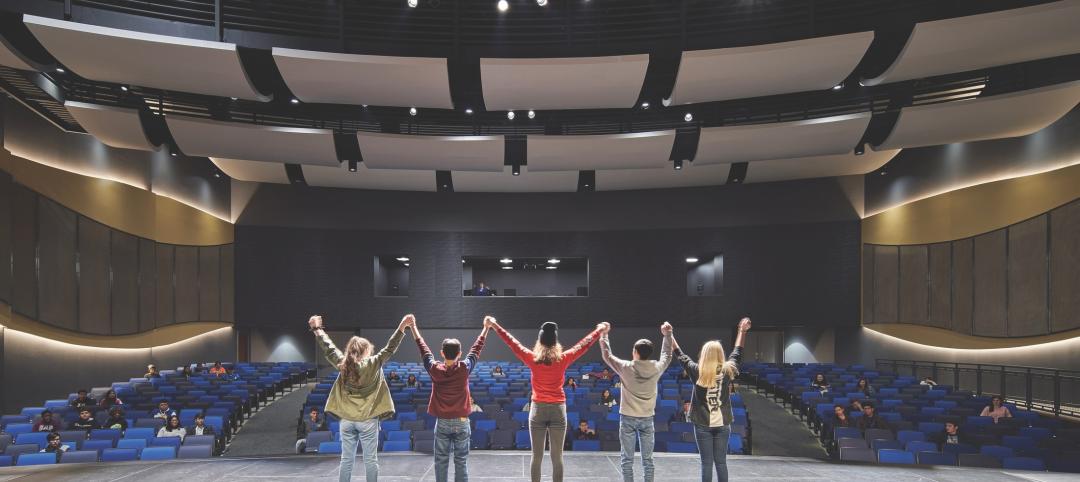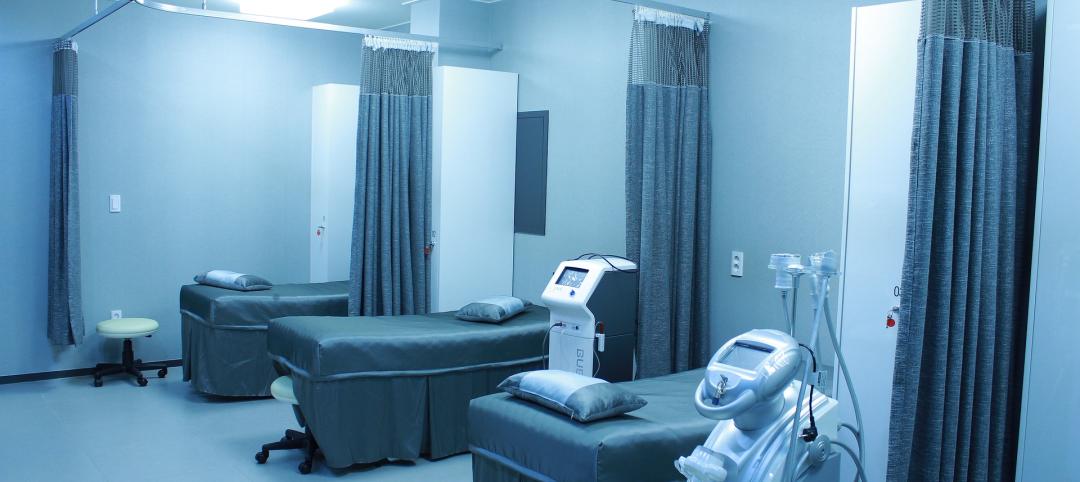A team of Perkins&Will researchers has been awarded a $30,000 grant from the American Society of Interior Designers (ASID) Foundation to enhance their PRECEDE dashboard, an open-source tool that draws on federal data to identify and assess community health priorities within the U.S. by location.
PRECEDE, which stands for Public Repository to Engage Community & Enhance Design Equity, will help designers integrate and translate public health data into design decisions.
“We selected Perkins&Will’s proposal because of its focus on health equity at such a critical time. Their tool paves the way for a future of more equitable public health,” says S. Dawn Haynie, Ph.D., a research fellow for ASID. “It makes the traditionally complex contextual research about a specific site accessible to all designers, not just those with research expertise.”
The CDC estimates that a significant proportion of a person’s health is attributed to the quality of their environment, personal education, and any behavioral constraints that may be impacting their community. Designers have an opportunity to improve community health outcomes by designing according to these factors.
However, access to the nuances within this federal data is limited, thus making it more difficult for designers to integrate such information early in the design process, when diversity and inclusion are most effectively addressed.
Identifying this gap in data and practice, the team first developed a beta version of PRECEDE in spring 2022 in a Microsoft Excel spreadsheet. Compared with similar public health-focused data visualization tools—most coming with limitations like not allowing the user to search by mailing address or not accounting for environmental factors—PRECEDE aggregates multiple sources into an easy-to-understand resource hub complete with best practices informed by successful case studies.
The research team first identified over 40 design-relevant health indicators that could be improved by interior design, such as obesity, diabetes, and asthma, in areas like material selection, ventilation, and circadian lighting.
“When we walk in the door, we bring our health conditions with us,” says Dr. Erika Eitland, director of Perkins&Will’s Human Experience Lab. “This tool allows us to use publicly available data to identify health priorities for our communities without having to ask invasive questions about individuals’ health.”
Using PRECEDE tool on projects
Case studies demonstrate PRECEDE’s ability to impact a wide range of project types and populations. For a Durham, North Carolina school, designers discovered higher-than-average breast cancer deaths in the area and responded with healthier materials to limit teachers’ and staff’s exposure to known harmful materials.
Similarly, at a national nonprofit’s Washington, D.C. headquarters, PRECEDE brought forward active workstations that encourage movement to mitigate the city’s high rates of cardiovascular disease and high blood pressure.
“This is a powerful example of how a multidisciplinary team from interiors to urban design and public health to architecture can de-silo research and support systems-level solutions,” adds Eitland.
Now, the team will continue to develop the tool outside of Excel using data analytics platform Power BI and an application programming interface that will retrieve data from their sources directly. Harvard Graduate School of Design, Massachusetts Institute of Technology, and Wentworth Institute of Technology will act as academic partners throughout the process. The PRECEDE dashboard pilot will then be delivered to ASID Foundation in September 2023., after which it will make the rounds at conferences and within partnerships.
Joining Eitland on Perkins&Will’s awarded team are David Cordell, Amina Helstern, Tyrone Mashall, and Devika Tandon. The ASID Foundation Research Committee selected winning projects based on the significance of the study, innovation in research questions, strength of methodology, applicability of findings, and more.
Related Stories
Sponsored | BD+C University Course | Jan 17, 2024
Waterproofing deep foundations for new construction
This continuing education course, by Walter P Moore's Amos Chan, P.E., BECxP, CxA+BE, covers design considerations for below-grade waterproofing for new construction, the types of below-grade systems available, and specific concerns associated with waterproofing deep foundations.
Sponsored | Performing Arts Centers | Jan 17, 2024
Performance-based facilities for performing arts boost the bottom line
A look at design trends for “budget-wise” performing arts facilities reveals ways in which well-planned and well-built facilities help performers and audiences get the most out of the arts. This continuing education course is worth 1.0 AIA learning unit.
Giants 400 | Jan 15, 2024
Top 130 Hospital Facility Architecture Firms for 2023
HKS, HDR, Stantec, CannonDesign, and Page Southerland Page top BD+C's ranking of the nation's largest hospital facility architecture and architecture engineering (AE) firms for 2023, as reported in the 2023 Giants 400 Report.
Airports | Jan 15, 2024
How to keep airports functional during construction
Gensler's aviation experts share new ideas about how to make the airport construction process better moving forward.
Adaptive Reuse | Jan 12, 2024
Office-to-residential conversions put pressure on curbside management and parking
With many office and commercial buildings being converted to residential use, two important issues—curbside management and parking—are sometimes not given their due attention. Cities need to assess how vehicle storage, bike and bus lanes, and drop-off zones in front of buildings may need to change because of office-to-residential conversions.
MFPRO+ News | Jan 12, 2024
As demand rises for EV chargers at multifamily housing properties, options and incentives multiply
As electric vehicle sales continue to increase, more renters are looking for apartments that offer charging options.
Student Housing | Jan 12, 2024
UC Berkeley uses shipping containers to block protestors of student housing project
The University of California at Berkeley took the drastic step of erecting a wall of shipping containers to keep protestors out of a site of a planned student housing complex. The $312 million project would provide badly needed housing at the site of People’s Park.
Giants 400 | Jan 12, 2024
Top 10 Casino Architecture Firms for 2023
JCJ Architecture, HBG Design, Gensler, and WATG top BD+C's ranking of the nation's largest casino architecture and architecture engineering (AE) firms for 2023, as reported in the 2023 Giants 400 Report.
Senior Living Design | Jan 11, 2024
Designing for personal technology is crucial for senior living facilities
Today’s seniors are increasingly tech savvy. It isn’t enough to give senior living residents a pre-determined bundle of technology and assume that they’ll be satisfied.
Giants 400 | Jan 11, 2024
Top 40 Convention Center Architecture Firms for 2023
TVS, Populous, Arcadis North America, Gensler, and EUA top BD+C's ranking of the nation's largest convention center and event facility architecture and architecture engineering (AE) firms for 2023, as reported in the 2023 Giants 400 Report.
















